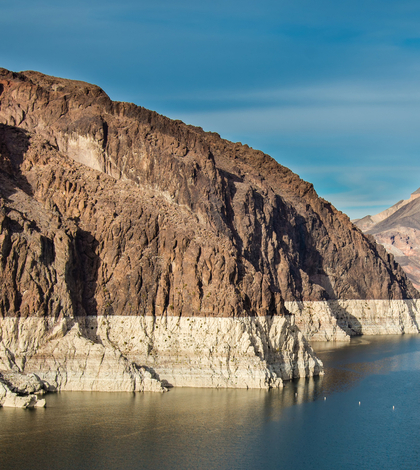Citing the lack of consensus plans by both California and Arizona for the Colorado River Drought Contingency Plan (DCP), Bureau of Reclamation Commissioner Brenda Burman announced on Thursday that the Department of the Interior is stepping in and asking the governors of the seven western states for recommendations on how to keep Lake Powell and Lake Mead from further decline.
“Neither California nor Arizona have completed all of the necessary work,” Burman said in a conference call. “Close isn’t done.”
Although Arizona’s legislature approved a plan for a first-time water shortage on Lake Mead on Thursday, the three lower Colorado Basin states – Arizona, California and Nevada – have not completed the DCP. The four Upper Basin states — Colorado, New Mexico, Utah and Wyoming — approved their DCP in December 2018.
“Nobody questions the growing risk and urgent need for action along the Colorado River,” said Commissioner Burman. “Completion of drought contingency plans is long overdue. Action is needed now. In the absence of consensus plans from the Basin states, the federal government must take action to protect the river and all who depend on it — farmers and cities across seven states.”
The Department of the Interior, through the Bureau of Reclamation, submitted a notice to the Federal Register on Friday seeking recommendations from the seven western governors for protective actions Interior should take amid ongoing severe and prolonged drought. The notice acknowledged the need for prompt action to enhance and ensure sustainability of Colorado River water supplies throughout the southwestern United States.
Burman had set an original deadline for the completion of the Lower Basin’s DCP while at the Colorado River Water Users Association conference last December. Burman has now indicated that while the seven Western states’ governors have been asked for their recommendations, that request could be called off and the notice terminated if Arizona and California sign the DCP.
“If all seven states are able to complete the Drought Contingency Plan before March 4, we will rescind and terminate that request,” Burman said.
Since 2000 the Colorado River Basin has experienced its most severe drought in recorded history and the risk of reaching critically low elevations at Lakes Powell and Mead—the two largest reservoirs in the United States—has increased nearly four-fold over the past decade. The Colorado River irrigates nearly 5.5 million acres of farmland and sustains life and livelihood for over 40 million people in major metropolitan areas including Albuquerque, Cheyenne, Denver, Las Vegas, Los Angeles, Phoenix, Salt Lake City, San Diego and Tucson.
 California Water News Daily Your Source For Water News in California
California Water News Daily Your Source For Water News in California


